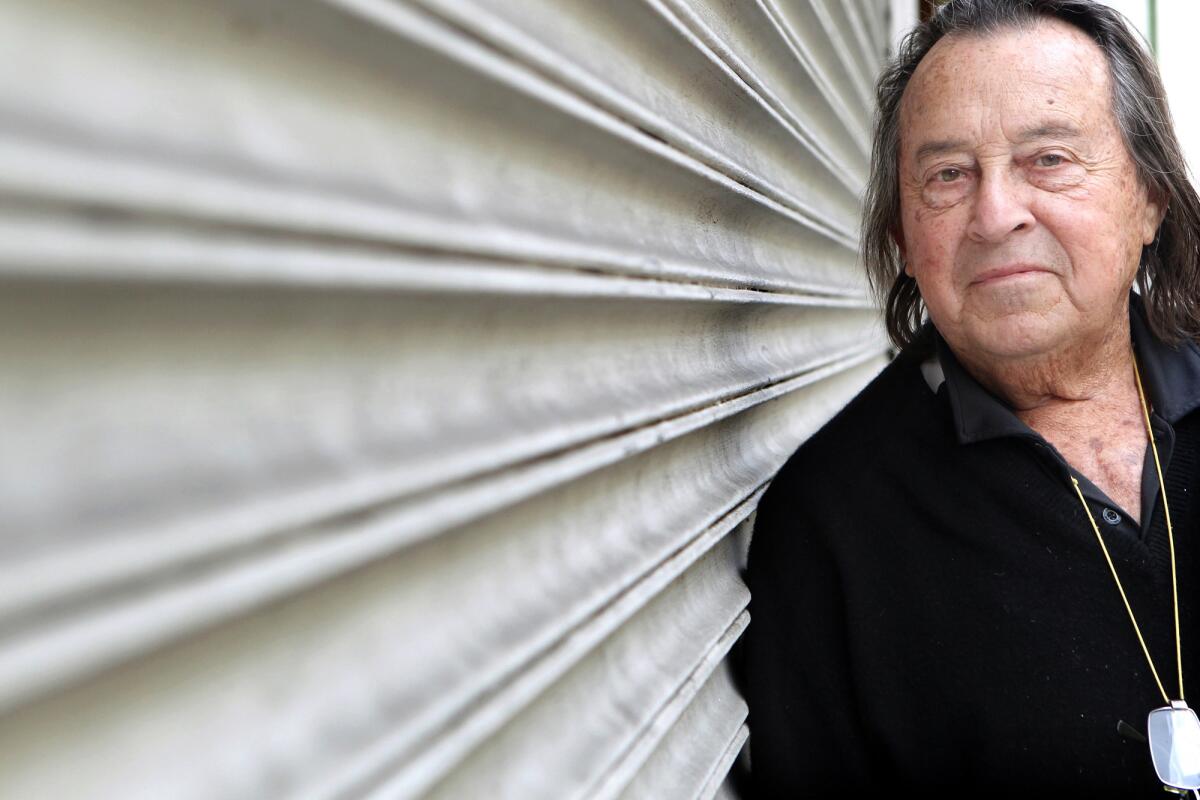Paul Mazursky dies: 5 of the writer-director’s most memorable movies

- Share via
Filmmaker Paul Mazursky, who died Monday at age 84, may not have been as well known as some of his contemporaries — Woody Allen, Robert Altman, Martin Scorsese — but over the course of his career, the five-time Oscar nominee left his mark on cinema as a writer and director of intelligent, quirky, often hilarious movies about the complexities of male-female relationships. For the film generation coming up in the ‘70s and ‘80s, his movies were filled with iconic moments that informed the pop culture of the time.
Here are five of his memorable films (the list is long, so for fans of “Down and Out in Beverly Hills,” “Blume in Love,” “Moscow on the Hudson” and others, our apologies.
“Bob & Carol & Ted & Alice” (1969): A year after making his screenwriting debut on the Peter Sellers comedy “I Love You, Alice B. Toklas,” Mazursky directed his first film, which he also co-wrote with Larry Tucker. A social satire against the backdrop of the sexual revolution, “B&C&T&A” stars Natalie Wood, Robert Culp, Elliott Gould and Dyan Cannon as two bourgeois couples whose New Age-y embrace of openness and honesty leads them to consider wife-swapping.
The film was a commercial and critical hit, finishing as the fifth-highest-grossing movie of the year and garnering four Oscar nominations, including Mazursky’s first, for original screenplay.
“Harry and Tonto” (1974): Mazursky would earn his second Oscar nomination with his original screenplay for this road film starring Art Carney as an elderly widower who is forced out of his Upper West Side Apartment and ends up traveling across the country to find a new home, with his feline companion Tonto in tow.
Though Mazursky didn’t win the Oscar (nor would he on subsequent tries), he did coax an Oscar-winning performance from Carney, who beat out Albert Finney, Dustin Hoffman, Jack Nicholson and Al Pacino.
“Next Stop Greenwich Village” (1976): Mazursky frequently mined his own life experiences for material: His second movie as a director, “Alex in Wonderland,” was about a director agonizing over his second movie. “Next Stop Greenwich Village,” his fifth film, was also semi-autobiographical, telling the story of an aspiring Jewish actor (played by Lenny Baker) who moves from his parents’ home in Brooklyn to bohemian Greenwich Village while working toward his big break.
“Greenwich Village” underwhelmed at the box office and failed to impress critics — at least the New York Times’ Vincent Canby said it wasn’t “aggressively awful” — but it has a certain nostalgic charm nonetheless.
“An Unmarried Woman” (1978): Mazursky once again explored the tribulations of love, sex and fidelity in what may be his most accomplished film, “An Unmarried Woman.” The film stars Jill Clayburgh as a thirtysomething gallerist, wife and mother whose life is turned upside down when her stockbroker husband jilts her for a younger woman.
Reviewing the film upon its release, Roger Ebert declared it “one of the funniest, truest, sometimes most heartbreaking movies I’ve ever seen.” “An Unmarried Woman” landed an Oscar nomination for Clayburgh and two more for Mazursky, for his original screenplay and for best picture (he produced with Anthony Ray).
“Enemies, A Love Story” (1989): Though he tended to write original screenplays, Mazursky proved a perfect match to adapt Isaac Bashevis Singer’s 1966 novel to the screen. Ron Silver stars in the dark comedy as a Holocaust survivor living in New York who entangles himself in a love quadrangle, with Anjelica Huston, Margaret Sophie Stein and Lena Olin vividly playing his three lovers. (Huston and Olin would both earn Oscar nominations for supporting actress.)
Reviewing the film for the Washington Post, Hal Hinson wrote, “Mazursky has made glorious movies in the past … but here he has everything in place. What he’s captured is the way life naturally careens between tragedy and farce.”
One could scarcely find a better epitaph for Mazursky’s work.
Follow @ogettell for movie news
More to Read
Only good movies
Get the Indie Focus newsletter, Mark Olsen's weekly guide to the world of cinema.
You may occasionally receive promotional content from the Los Angeles Times.









